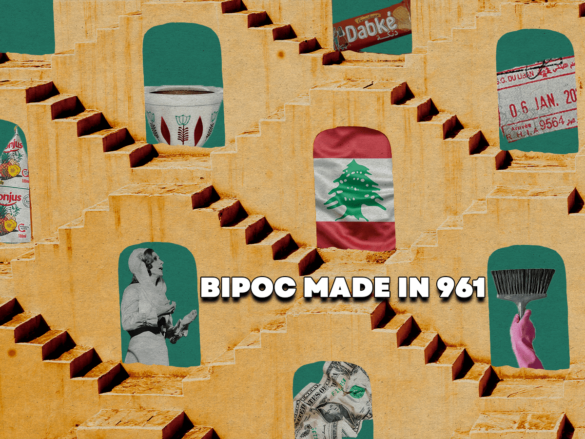They say, the most important conversation is often the most difficult one to have.
I’ll argue the most important stories are often the most difficult ones to write.
The journey of BIPOC (Black, Indigenous, and people of color) and racialized people born in Lebanon resembles the one of Theseus and the minotaur Greek mythology tale.
It is the epitome of navigating a wild labyrinth while attempting self-protection and preservation from systematic and systemic racism.
The idea that we are not affected by racism equally holds partial truth!
In our case, as children of MDWs (Migrant Domestic Workers) born in Lebanon, we certainly share in common a dualistic experience of anger against our parents’ malevolent years of oppression within the Kafala system, and in contrast the benevolent reaction of few liberal citizens who admire our hybrid identity.
Our mastery of Arabic and other spoken languages intrigues…
Locals ponder about our deemed mysterious identity: we are labeled as African, Asian, American or coming from a remote island, but rarely the optionality of being born in Lebanon occurs.
Our livelihood is embedded on a constant steady walk in between edges: a blossoming interpersonal activism while fighting racism, inequity and stereotypes.
The fight to exist and coexist drains our spirit! We dream to enjoy the freedom of being human, holding equal rights, striving, not worrying about residential permits or our parent’s legal statuses, precarity, fighting sexual harassers, being followed around in the streets, bullies at school, university, the lack of job opportunities, being in the sideline while we are aware of our richness, capabilities, and high potential.
The fighting loop may at times drain our spirit, however we resist, and continue to resist! Children of migrant domestic workers resist compliance, systemic racism, generalization, biases experienced from locals.
We opt for intentional dissociation from a generalized one-size-fits all mentality through finding solace within our safe community and the what we call “good ones”; they are our childhood Lebanese friends, and many uplifting souls we’ve encountered through the years. However, the retreat is short-lived, because we are born front fighters - being in between many worlds: the migrant domestic workers community and “our not our country” reality!
As we mature, we relinquish power and settle for belonging to humanity as a whole. The soul search culminates once we unlock self-appropriation, acceptance and embrace being us - BIPOC born in Lebanon!
It is not a secret that migrant domestic workers in Lebanon suffer from discriminatory labels - a trendy curse within a country practicing and endorsing modern-day slavery.
I remember my first encounter with racism; I was 5 years old, and seriously questioned why my bullies would scream: “Sri Lankiye”, it was irrelevant, I’m not from Sri Lanka.
The bullies made sure to emote their intentions: the nationality; “Sri Lankiye” was stripped from it meaning, it was transformed into a racial slur.
To add context, in the nineties a high number of migrant domestic workers in Lebanon were Sri Lankan, currently the majority of MDWs migrate from Ethiopia and the Philippines.
BIPOC witness how racial slurs mirror the racial origin of each migration waves! A common verbal racial slur we experience is being called “Habashiye” referring to Habesha, the people of Ethiopian and Eritrean heritage. “Habashiye” replaced “Sri Lankiye” as a mean of inducing disdain through altering the true etymology of a beautiful word.
The question is how to find a place when there’s no space for children of migrant domestic workers in Lebanon?
The hard truth is you carve your own space within a feeble system. We tap into our unrecognized potential. We are given agencies and capabilities to change policies, fight against systemic racism, societal practices and attitudes embedded in discrimination.
Education and constant self-actualization are one crucial weapon. This will depend certainly on a multitude of external factors like the oppressive system shift, access to education, one’s upbringing, level of administrative challenges, undocumented or documented parents, life experiences, environments, outside influences, beliefs, and numerous other metrics.
On International Day for the Elimination of Racial Discrimination, we children of migrant domestic workers dream of visibility, respect, and holding mutual rights as any other individual. We have names and multiple identities that produce, if allowed positive diversity.
We love Fairouz and Tems, we want to live in peace and not be shattered in pieces by the Kafala system!
B.K. - Child of a Migrant Domestic Worker in Lebanon




